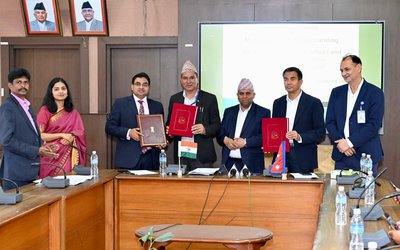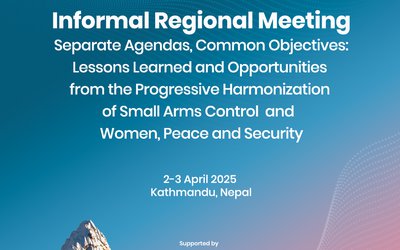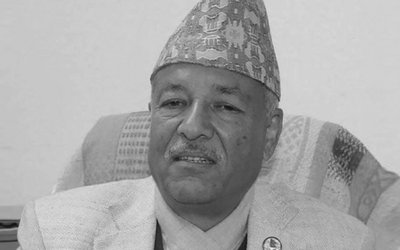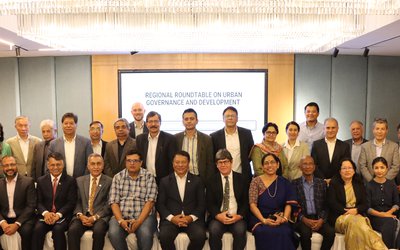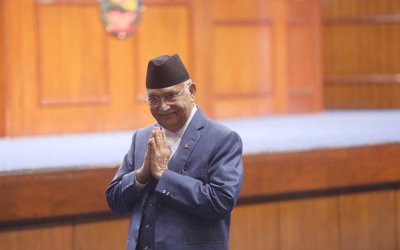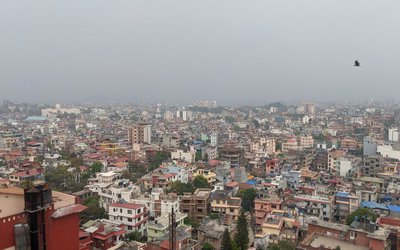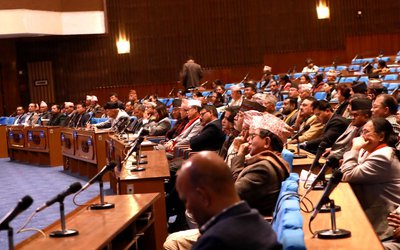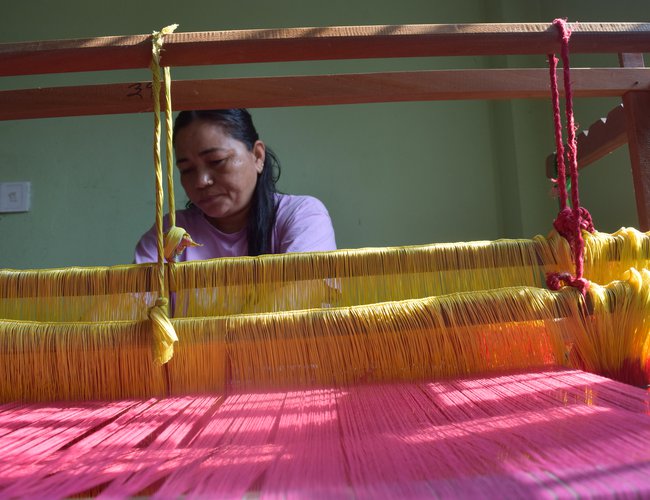
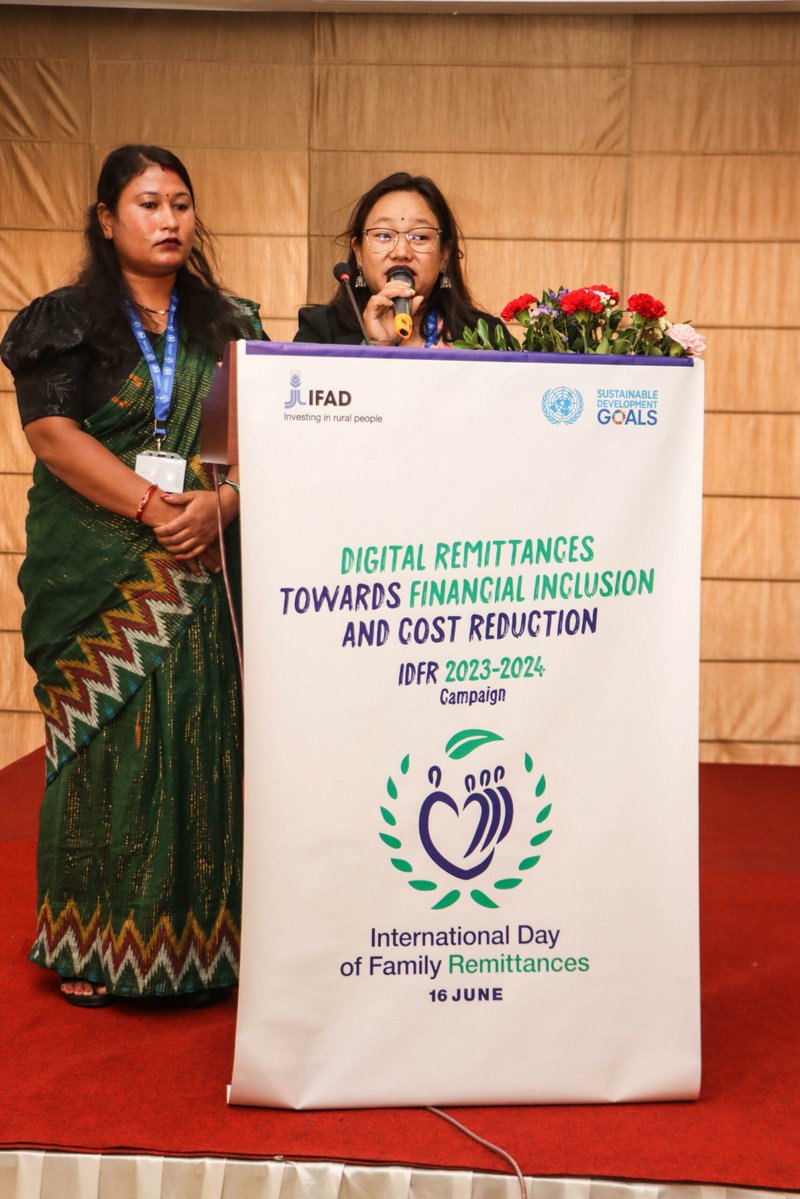
(Karki Left and Rai )
Foreign employment has significantly contributed to Nepal’s national economy, playing a crucial role in poverty reduction. Despite the numerous challenges, including prolonged separations from their husbands, managing household responsibilities, and raising children, the contributions of women in the remittance economy often go unnoticed.
When husbands leave for foreign employment, their spouses—typically illiterate, unskilled, and poor—are left to manage the households. Until the remittances start arriving, these women often resort to borrowing money at high-interest rates to sustain their families.
The Rural Enterprise and Remittance Project (RERP) SAMRIDDHI, in partnership with Helvetas-Nepal and local governments, has been a game-changer. The project offers three-month skill training programs that have significantly improved the lives of women, reducing their dependency on remittances and fostering self-reliance.
Women from Miklajung Rural Municipality and Urlabari Municipality in the Morang district have shown how such training can transform the lives of migrant workers' spouses and other poor and marginalized women.
Among the hundreds of women left behind by their husbands, Santoshi Rai, 30, from Miklajung Rural Municipality Ward 7, Deb Gaud, and Ranjana Karki from Urlabari Municipality Ward 1, Simana Basti,stand out.
Rai and Karki, who visited Kathmandu on June 10, shared their poignant stories and successes at a high-level gathering organized by IFAD and IOM to observe International Day of Family Remittances. The SAMRIDDHI Project, now nearing completion, has transformed the lives of many women from poor and marginalized communities across three provinces, 16 districts, and 208 Palikas.
Under the Off-Farm Technical and Vocational Skill Training program, SAMRIDDHI, in partnership with Helvetas Nepal and FNCCI, has launched apprenticeships and outcome-based vocational skills training. This initiative aligns with the Technical and Vocational Education Training (TVET) Policy, aiming to create gainful employment opportunities.
Karki, whose husband works in Saudi Arabia, has faced immense challenges. She has had to care for their three-year-old child and repay a loan her husband took for their elder son's medical treatment and his own recovery from COVID-19. Tragically, their elder son passed away.
“After the death of my elder son and my husband’s departure to Saudi Arabia, I fell into depression. The Samriddhi Project and the Dhaka weaving training they provided changed everything for me,” said Karki. She now earns around Rs. 25,000 ($200) per month by weaving Dhaka cloth.
Karki has opened a personal savings account at a nearby commercial bank and saves a small amount of money in a local cooperative. “There were days when nobody was ready to lend us money or support us. We either had to starve or pay high interest rates to get a loan for household needs,” she explained.
“The three-month training in Dhaka weaving, along with a loom setup, allowed me to start earning money. Now, it’s unbelievable that everyone, even local cooperatives, is willing to loan us money,” Karki added. “Speaking about my journey before such a large gathering, thanks to IFAD and the SAMRIDDHI project, was a lifetime achievement.”
Rai, 31, lives with her two siblings, a son, and a daughter. Her husband left for Oman as a migrant worker seven years ago, and she has not heard from him since. Rai has endured many hardships, including working in a local factory for 11 hours a day with daily wages of Rs. 400 ($2).
Through the RERP SAMRIDDHI initiative, these women have gained valuable skills and financial independence, transforming their lives and supporting their families despite the challenges posed by migration and economic hardships.
The Impact of RERP SAMRIDDHI
The three-month technical training in Dhaka weaving provided by the SAMRIDDHI project, in partnership with Helvetas-Nepal and following the Technical and Vocational Education Training (TVET) guidelines, has transformed the lives of many women, including Karki and Rai.
Rai, now earning Rs. 25,000 ($200) a month from Dhaka weaving, spends 10 hours a day on her craft. This income is enough to cover the school fees for her daughter, who has completed her +2 exams, and her son. "I have enough money now to feed my two siblings and pay household rent. With my daughter helping me, our combined income is around Rs. 30,000," said Rai, who lives 550 kilometers east of Kathmandu.
Previously unemployed and unskilled, Karki and Rai had no option but to work for low daily wages, with lenders reluctant to offer them loans.
"Since I installed the loom and started producing Dhaka cloth, the market and people in the neighborhood have been kind and helpful," said Rai, who now has a savings account at a nearby bank and is a member of a local cooperative.
Karki and Rai shared their success stories at a high-level meeting in Kathmandu, showcasing the potential for prosperity through skill development for marginalized and migrant communities in Urlabari and Miklajung.
Kalpana Magar, a resident of Miklajung Rural Municipality Ward No. 6, Khabe, has also achieved financial independence through skill training. Her story illustrates how such training can open opportunities for migrant workers' families. Like Rai and Karki, Magar too has successful story to share.
For a long time, remittances from her husband were Magar's primary source of income, covering school fees, house rent, and daily essentials. With little knowledge of formal banking channels, Magar relied on informal methods to receive money.
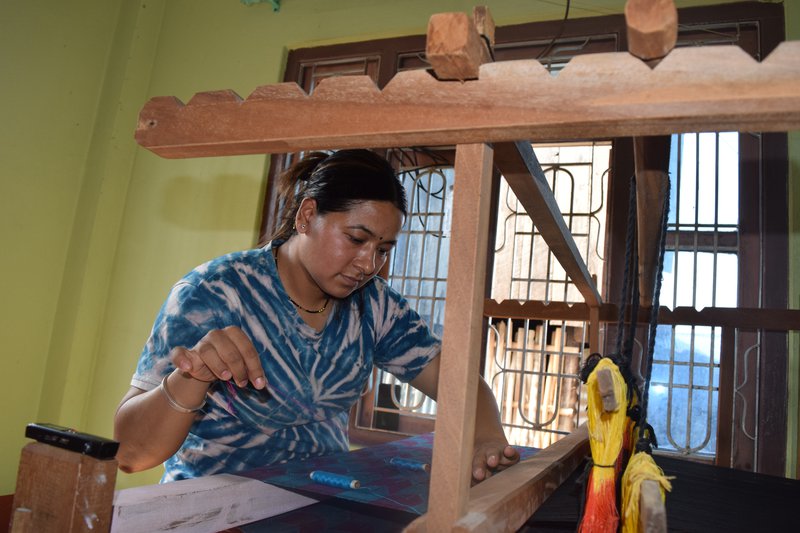
Kalpana Shrstha
However, through the training provided by the SAMRIDDHI project, she has learned valuable skills and gained financial literacy, transforming her economic situation.
These examples highlight the profound impact of the SAMRIDDHI project's skill training programs, empowering women to achieve financial independence and improve their livelihoods.
The Dhaka weaving training provided by Helvetas-Nepal under the SAMRIDDHI Project has empowered Kamala to earn her own income and save the remitted money. She has opened a savings account at a nearby bank and now receives her remittances through formal channels, making the process secure and much easier.
Financial independence has enabled Kamala to support household expenses and invest the money sent by her husband. Receiving remittances through formal banking channels has simplified her financial management.
Kamala Shrestha, a 35-year-old resident of Rachna Nagar in Miklajung Municipality Ward 8, migrated with her family two years ago and joined the technical vocational training provided by SAMRIDDHI. Following the completion of her training, she has successfully transitioned from a life of poverty and dependence to achieving a moderate income and self-sufficiency.
Shrestha , a mother of two daughters, exemplifies how income-oriented training can empower women.
Similarly, Bimla Tamang, a 38-year-old resident of Miklajung Rural Municipality Ward No. 8, received a handloom from the Rural Municipality to weave Dhaka during her leisure time. This training has significantly impacted her life. With the growing demand for Dhaka, she no longer faces market-related challenges.
Bimla now earns around Rs. 25,000 ($200) per month, which adequately supports her family of five, including her father-in-law, mother-in-law, and two daughters. She uses her earnings to cover daily expenses, including her children's school fees.
Thanks to the skills acquired from the Samriddhi Project and the handloom provided by the Miklajung Rural Municipality, Bimla has successfully established her own enterprise, Bimala Dhaka Udhyog, to build her own brand.
As the demand for Dhaka cloth continues to rise, Urlabari Municipality and Miklajung Rural Municipality are gradually becoming hubs for Dhaka production. The proximity to the East-West Highway and the availability of skilled workers make it easier for traders to distribute products across Nepal.
“SAMRIDDHI’s TVET training has transformed the lives of women and redefined the identity of our location. We receive orders for Dhaka from Pokhara, Bhaktapur in western Nepal, Ilam, Taplejung, and Panchthar in eastern Nepal, as well as from the Indian states of Sikkim and the Darjeeling district of West Bengal,” said Saraswati Rijal, a certified CTVT instructor and Dhaka store owner.
In the past three years, Wards 5, 6, 7, and 8 of Miklajung Rural Municipality have seen a notable increase in Dhaka production, with over 300 looms operated by women from migrant worker families.
“Given the current trend of establishing more handlooms, the municipality is considering declaring our area a Dhaka hub. We have also contacted officials from SAMRIDDHI to provide us with the technical knowledge to achieve this status,” said Babi Kumar Rai, Chairperson of Miklajung Rural Municipality. “Dhaka weaving can provide employment opportunities for youth and women.”
Urlabari Municipality is experiencing a similar transformation. Approximately 300 people are employed in Dhaka weaving within the municipality.
With the increasing number of Dhaka weavers and handlooms, small cooperatives have taken the initiative to organize marketing efforts and establish showrooms in cities like Urlabari. Rijal, a certified vocational skill trainer in Dhaka, has opened shops in Urlabari and Miklajung to showcase products and receive orders.
The success of these initiatives highlights the significant economic impact of Dhaka weaving, providing sustainable livelihoods and fostering community development in Urlabari and Miklajung.
Impacts from the SAMRIDDHI Project
Sanjeev Kumar Shrestha, an expert in Value Chain & Markets and a National Consultant at the International Fund for Agricultural Development (IFAD), emphasized that Dhaka weaving and SAMRIDDHI's off-farming programs have effectively demonstrated the synergy of skills training, market linkages, value chain development, and the promotion of new technologies to alleviate poverty in rural Nepal.
The three-month Vocational Skill Training (VST) Level 1 in Dhaka weaving, implemented by a private training and employment service provider in partnership with the SAMRIDDHI Project, is transforming lives. In close collaboration with Miklajung Rural Municipality, the trainees received free handloom sets provided by the local municipality.
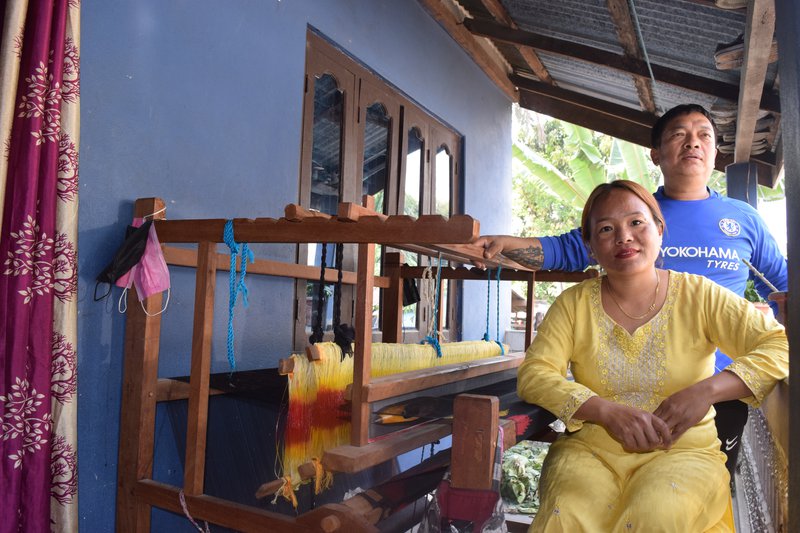
(Tamang and her husband)
Transitioning from housewives reliant on their husbands' remittances, many women are now generating an income of around Rs. 25,000 ($200) per month.
Kamala, for instance, has provided work for her husband since his return. "My husband came back home 10 months ago after working as a migrant worker in the Gulf for 12 years. He has been helping me with daily household tasks, farming activities, and marketing our products. His assistance has enabled me to focus more on weaving, leading to increased productivity," she shared.
Following SAMRIDDHI’s skill training, a significant number of previously unemployed women in the region have now secured employment opportunities, overcoming financial difficulties.
“This income, earned through home-based work, is sufficient to meet household needs. Completing the training has brought about a remarkable change in my life,” said Sandip Paudel, Team Leader of Helvetas Nepal.
The success of the SAMRIDDHI Project in promoting Dhaka weaving exemplifies the profound impact of targeted skills training and support programs in transforming rural economies and empowering women in Nepal. Previously, meeting basic necessities was a challenge for migrant families, but now they are able to cover household expenses with their own earnings.
The SAMRIDDHI initiative has led to significant transformations in the past three years, particularly in enhancing the capabilities of rural women through Vocational and Skill Training. Project Manager Saroj Prasad Guragain expressed gratitude for the diligent efforts of Helvetas Nepal in executing the job component effectively over the last two years. “The collaborative work of the entire project team has resulted in positive outcomes,” he noted.
One notable aspect of the project's performance is the successful implementation of all planned skills training under the Decent Jobs sub-component. This includes the completion of Vocational Skills Training Round 3, which was previously uncertain. The project management, procurement team, and Helvetas are deserving of praise for their professionalism and ability to meet tight deadlines. The successful completion of Round 3 is a significant achievement.
According to Sandip Poudel, the lead of Helvetas-Nepal, a total of 1,273 individuals, consisting of 548 males and 725 females, completed training in 24 different occupations in 2023 through collaboration with the local government and private-led training and employment service providers.
The SAMRIDDHI project demonstrates how targeted training and support can lead to financial independence and improved livelihoods, showcasing a successful model for rural development.

(Project manager Guraian)
Project Manager Saroj Prasad Guragain attributed the current success to the diligent efforts of all staff members and stakeholders involved in the project's implementation from inception to the present.
Covering 16 districts in Koshi, Madhesh, and Bagmati Provinces, IFAD and the Ministry of Industry, Commerce, and Supply (MoICS) have positively impacted more than 200,000 beneficiaries through financial education initiatives reaching approximately 300,000 individuals.
“Under the TVET program, 29,521 individuals have graduated from courses like Dhaka weaving. Many women, like Karki, Rai, and others, have seen drastic changes in their livelihoods,” said Jiban Shrestha, RERP/SAMRIDDHI Migration Coordinator.
The RERP project has demonstrated that enterprises built upon skill training for women significantly contribute to generating employment at the local level and improving the economic conditions of poor and marginalized women and families of migrant workers.
These initiatives underline the transformative power of targeted training and support in fostering financial independence and sustainable livelihoods for rural communities in Nepal.
The initiative's success highlights the importance of targeted interventions that provide technical training and financial education. Such programs can transform lives, promote economic independence, and contribute to broader socioeconomic development.
In summary, the RERP SAMRIDDHI project stands as a testament to how strategic support and education can empower women, improve livelihoods, and stimulate economic progress in rural and marginalized communities.

Keshab Poudel
Poudel is the editor of New Spotlight Magazine.
- FM Dr. Deuba’s India Visit: Mission Aborted
- Mar 26, 2025
- AMBASSADOR MAEDA TORU: Warm Regards
- Mar 24, 2025
- PRO-MONARCHY MOVEMENT: Rising Dissatisfaction
- Mar 23, 2025
- Dr. PRABIN MANANDHAR: Person With Humility
- Mar 16, 2025
- US SUSPESION OF GRANT: Impact On Nepal
- Mar 10, 2025

